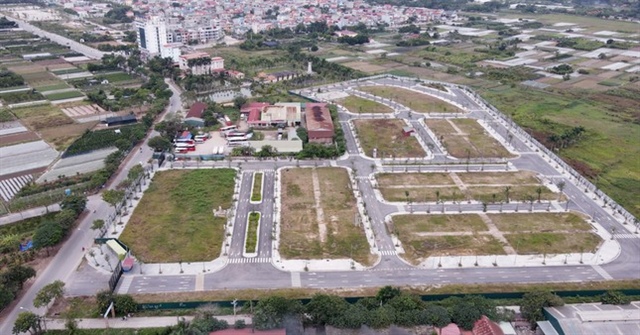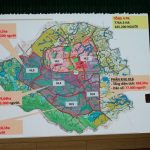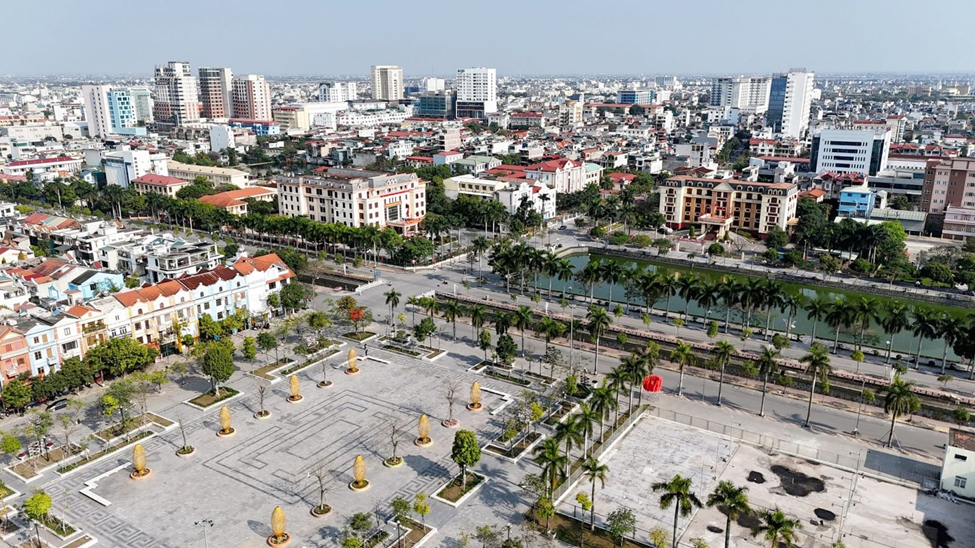The Need for a Real Estate Price Index
Statistics show that the average selling price of apartments has increased from 17% to 25% in just the first two months of 2024 compared to the previous year. This has made it difficult for young couples like Mr. Mai Viet Trung, even with a fairly high income, to find affordable homes. They have had to look in the outskirts to find more reasonable prices, but still face high prices and poor quality.
 |
According to Dr. Tran Xuan Luong, Real Estate, National Economics University |
Mr. Trung shared that he and his wife had visited many apartments hoping to find one that fit their budget without having to take out a large bank loan, but some apartments had increased in price by 100-200 million just in a matter of months, causing them a lot of headaches.
Dr. Tran Xuan Luong, a real estate expert from the National Economics University, points out that to accurately determine land and housing prices and avoid “overpriced” properties, a clear database and specific metrics are needed to assess whether the asking price is reasonable.
In addition, developing an annual land price list based on market principles is an important and necessary step to timely adjust land values to match reality.
Dr. Luong also emphasizes the importance of establishing a real estate database, specifically creating a real estate price index to manage transactions and information related to each real estate segment. These reforms will help eliminate shortcomings in land price appraisals, contributing to a more transparent and efficient real estate market.
Dr. Luong states that looking at market trends from 1993 to the present, house prices can stagnate or drop by a few tens of percent, but when the market heats up again, it can double or triple in just a few months.
He advises that homebuyers should not be overly worried. If they are buying a home to live in and are not using excessive financial leverage, they should not focus too much on the price per square meter but rather consider other factors such as buying a smaller home. Infrastructure, social amenities, convenience, and suitability to their actual needs are of utmost importance.
In addition, homebuyers should carefully consider factors such as construction quality, project legality, transportation connectivity, and surrounding amenities. These factors will directly impact their quality of life and the future value of their real estate investment.
However, it is important for buyers to have a holistic view and thoroughly evaluate their decisions based on their financial resources and family circumstances, avoiding the mindset of buying a house at all costs out of fear of missing out or price increases like in previous cycles. Although the government does not yet have a real estate price database or indices, they have implemented a series of measures and regulations to protect homebuyers’ interests in the coming time.
Rising Prices Due to Supply Shortage
Real estate prices, especially housing and land, have been continuously increasing and are higher than the income levels of the population. This has made it difficult for low-income workers in urban areas and industrial zone workers to find and establish housing. In Hanoi and Ho Chi Minh City, there are hardly any apartments priced below 25 million VND per square meter.
Not only have house and land prices increased, but land lot prices are also experiencing fluctuations, especially in suburban areas. Recently, an auction of 68 land lots in Ngo Ba, Thanh Than village, organized by the People’s Committee of Thanh Oai district, Hanoi, recorded starting prices ranging from 8.6 to 12.5 million VND per square meter. However, many lots were auctioned off at prices ranging from 52 to 100 million VND per square meter.
 |
Land lot prices are currently undergoing significant fluctuations. |
Although located 30-40km from the city center, the prices of these lots are equivalent to those of luxury apartments in some central districts of Hanoi. This indicates a rising price trend in suburban areas.
Experts warn that this could be a sign of real estate price manipulation, creating an artificial market boom and leading to the risk of auction winners backing out of their bids.
They explain that the primary cause of this situation is the shortage of apartment supply, especially in central areas, coupled with the strong demand for home purchases in recent years. In addition, real estate speculation has been a significant factor in driving up housing prices.
At the same time, they emphasize the importance of tightly controlling real estate speculation and encouraging the development of social housing as a key solution to stabilizing the Hanoi real estate market in the future.
According to the Vietnam Real Estate Brokers Association, the market is facing a shortage of supply, and the presence of large speculative groups has caused continuous price increases. With the general population’s income tending to decrease due to economic difficulties, the ability to access housing has become increasingly challenging for most people.
Therefore, tighter controls are needed to prevent price increases and bring the market to a stable and healthy state. Additionally, encouraging the development of social housing is considered a crucial solution. Increasing the supply of affordable housing will help ease the pressure on the real estate market and stabilize prices. This will enable middle and low-income earners to have the opportunity to own their homes.
Duy Minh
Government Initiates National Land Database Development
The government has recently assigned 5 departments to develop a national land database plan to integrate with the national population database.
Land Law 2024: Thoughts on Land Price Regulations
After an elaborate construction process, the Land Law (amended) has finally been passed by the National Assembly, raising hopes of resolving difficulties and obstacles in land management practices and helping unlock the potential of this crucial development resource. However, regarding land price regulations, the writer still has some concerns about their rationality and feasibility in the implementation of the law.




















